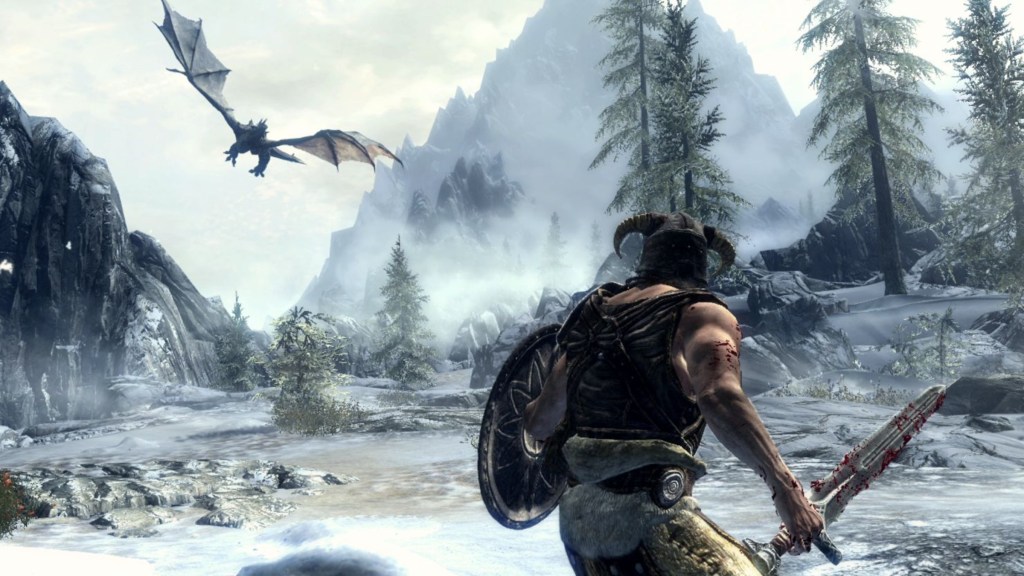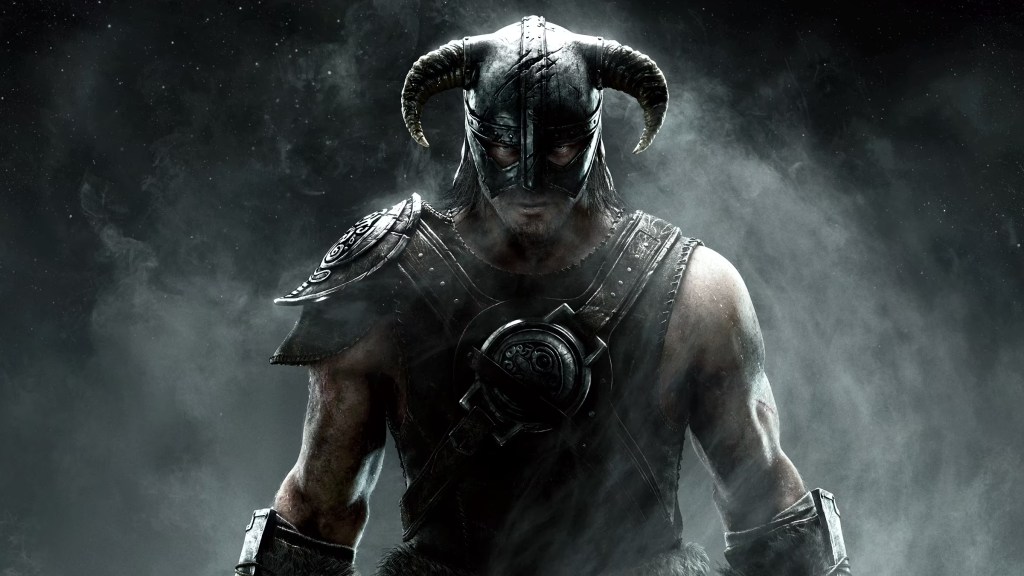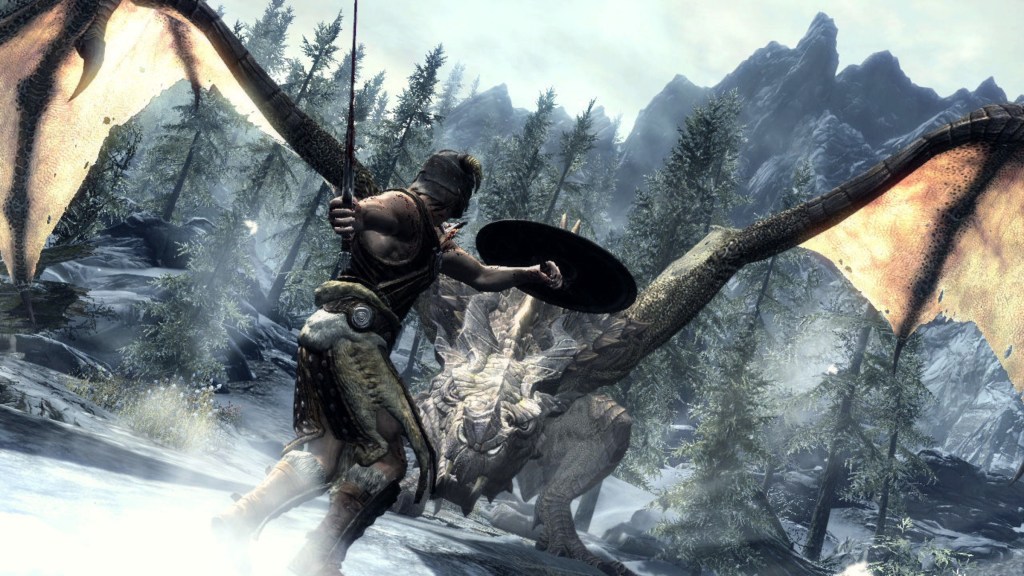November 11, 2011, remains an important launch date for many gamers. That’s when The Elder Scrolls V: Skyrim launched for Windows, PlayStation 3, and Xbox 360. Developed by Bethesda Game Studios, the game was an instant smash. Earning rave reviews from critics and exceeding financial expectations, Skyrim was quickly heralded for the depth of its design and the strength of its overall execution. I’ve also never actually gotten to the ending of the game, because I give up during each attempted playthrough.
Videos by ComicBook.com
There’s just something about the open-world approach of Skyrim that I don’t like. Even though I’ve adored games that took clear inspiration from Skyrim, I’ve had to spend the last 14 years explaining why I simply didn’t connect to one of gaming’s biggest hits. Don’t get me wrong, I’m not calling it overrated or anyone that likes it wrong — but there’s just something about the series that has always kept me from connecting with it.
Skyrim Is A Generational Hit, But I’ve Never Liked It

For 14 years, I’ve had to defend myself when I say that I recognize how good The Elder Scrolls V: Skyrim is, but I can’t stand playing it. Building off the massive popularity of The Elder Scrolls IV: Oblivion five years prior, Skyrim is one of the biggest fantasy epics in the history of gaming. The player character, known only as the Dragonborn, is a completely customizable fantasy hero who is tasked with defeating the fearsome dragon known as Alduin the World-Eater.
A massive open-world game where players have a truly staggering amount of lore to learn, enemies to confront, and side quests to complete, Skyrim is very much designed around giving the player the best RPG experience the medium has to offer. There are countless choices to make, with player experience, playstyle, and moral directive defining many of the game’s choices and missions. Coupled with solid controls and terrific graphics, I can perfectly understand why so many gamers, both critics and general audiences alike, celebrated it as a masterpiece when it launched.
However, I just couldn’t connect with the game, even when other “open-world” titles like Mass Effect 2, Grand Theft Auto: San Andres, and The Legend of Zelda: Tears of the Kingdom all remain personal favorites. Maybe it was the sheer scope of choices afforded to players in Skyrim that I found overwhelming, or the game’s somewhat conventional approach to fantasy worldbuilding that was gorgeously rendered but relatively straightforward. Maybe it’s just the Oblivion series as a whole don’t land with me, which I’ve always struggled to engage with.
Maybe it’s the focus on character and how Skyrim purposefully leaves it more open-ended — you may be able to shift Commander Shepard or CJ into all sorts of directions to match your gameplay style and narrativereferences, but they still fit into the established narrative neatly, as opposed to the more open-ended nature of the Dragonborn leaving the game purposefully without a specific personality. The music, writing, and presentation of Skyrim are great, but I could never make it more than an hour before becoming frustrated or, even worse, bored with a world that I could fully turn into my own.
When An Open World Becomes Too Much

This wasn’t just a problem I had with Skyrim, either. When The Elder Scrolls IV: Oblivion was much the same way, a compelling game on paper and a terrifically executed RPG that I quickly got bored with. Again, I think it has something to do with the presentation of the open-world setting. In other games like Baldur’s Gate 3, there’s an expansive setting that players can explore and make into their own, with romances, enemies, and narrative paths different each playthrough.
However, there’s a central tone to the entire adventure that can veer, change, and evolve based on the player’s experience. The inciting threat of the Mindflayer within the player’s brain gives the entire experience a clear point of tension while opening up a world and quickly establishing different perspectives and personalities to reflect the world. This is something I also loved about the Red Dead Redemption games, which were similarly overwhelming to me at first but quickly developed a compelling narrative and morally complex worldbuilding that drew me in.
Skyrim, by contrast, is the ultimate sandbox. It’s exciting for players who’ve always wanted to be the hero, but I couldn’t care less about becoming the Dragonborn. My favorite open-ended video games, even the ones with specific characters that can change based on your gameplay style and narrative choices, are the ones that have a clear and specific throughline. I take over a character and tell their story, instead of just throwing myself into the world.
You can alter it, but there’s a specific feeling of your driving this grand epic, as opposed to lore dumps and straightforward quest chains that typically play out the same way, no matter how the player’s version of the Dragonborn develops. Skyrim is a gorgeous sandbox where anything is possible, but I prefer a game to give me a directive and then let me choose my path to it, similar to the Fallout games and their expansive setting, but with a more immediately story-driven approach. That balance is crucial to get invested in a massive open-world game, and Skyrim never did that for me.
The Difference Between Disliking A Game And Criticizing It Explains My Perspective On Skyrim

I wish I loved Skyrim as much as everyone else. In terms of raw execution, few other games have been able to match its ambition even over a decade after it was released. However, despite multiple attempts, I never make it very far. Something similar happens in World of Warcraft as well, where multiple attempts to embrace the full scope of the setting just fall flat and leave me feeling aimless instead of driven. It’s one of my most defiant takes about modern gaming, an uncommon opinion about a title I recognize as a genuine triumph of the medium.
This is the thing that I’ve always had to explain further to people: I don’t think Skyrim is a bad game. I don’t think Oblivion is either, to be honest. I can see why my friends who swear by them do so. What I don’t like is when they complain that I’m hating on them just for the sake of being contrarian, or that I think the execution by Bethesda is lacking. Bethesda set out to create the ultimate role-playing experience, and in many regards, they succeeded.
However, the specific execution is something I’ve never been able to connect with. This is the ultimate case of showcasing the difference between criticizing a work of art and just not liking it. It’s a “me” thing, which I recognize. It’s too open-ended, almost, to the point where the things that compel me in other titles just don’t connect in Skyrim. The fantasy realms, cityscapes, wastelands, ruins, and galaxies of my favorite open-ended games never left me feeling aimless in a way that Elder Scrolls games do. Maybe sometime in the next 14 years, I’ll finally change my mind and find a way to fully embrace the majesty of Skyrim. But for the time being, it remains perhaps the most popular game with the broad gaming audience that I just can’t care about.








